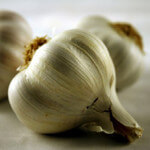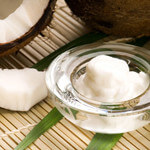 Colloidal oatmeal is finely-ground oatmeal that has been added to water. Despite sounding like a fad product, this milky-white colloid has been commercially available since 1945, and contains just as many health benefits as regular oatmeal. In this article, you’ll learn more about these health benefits and how to prepare a bath using an oatmeal colloid.
Colloidal oatmeal is finely-ground oatmeal that has been added to water. Despite sounding like a fad product, this milky-white colloid has been commercially available since 1945, and contains just as many health benefits as regular oatmeal. In this article, you’ll learn more about these health benefits and how to prepare a bath using an oatmeal colloid.
List of Health Benefits
Treats numerous skin conditions – Oats are rich in beta-glucans, which are polysaccharides that can reduce skin inflammation, activate immune cells in the skin, and stimulate collagen deposition. For this reason, oatmeal has always been regarded as a natural skin healer – and colloidal oatmeal is no exception. The difference between oatmeal and colloidal oatmeal, however, is that whereas the former is ingested as a food, the latter is soaked by the skin, allowing for superior beta-glucan absorption. Consequently, virtually every inflammatory skin condition can be eased (and often cured) using colloidal oatmeal: chicken pox, sunburn, eczema, diaper rashes, poison ivy, sumac, and oak rashes, insect bites, acne, psoriasis, and more. In fact, oatmeal colloids are so effective in this regard that even the Food and Drug Administration (not exactly known for being friendly to natural remedies) regulates them as a skin protectant.
Cleanses the skin – Oats are also rich in saponins, which are chemical compounds found in numerous plant species. These saponins give oatmeal and oatmeal colloids remarkable cleansing, moisturizing, and soothing qualities that produce wonderfully nourishing and invigorating baths and facial scrubs (not to mention excellent ingredients for skin care products). For this reason, occasional colloidal oatmeal baths are a good idea even if you don’t have any skin conditions to treat. You can even give them to your pets!
Lowers blood cholesterol – Colloidal oatmeal’s aforementioned beta-glucans are a water-soluble fiber, meaning that they have a high water-holding capacity. This allows the beta-glucans to gently travel through the digestive tract, attach themselves to bile acids (which are made from cholesterol), and then remove them from the body. This ultimately reduces “bad” LDL cholesterol and total cholesterol, lowering the risk of heart disease.
How to Make a Colloidal Oatmeal Bath
To make a bath using oatmeal, fill the bathtub with warm water and pour two or three cups of colloidal oatmeal into it. To aid dispersion, you could pour the colloid directly into the faucet’s water stream. Then, soak in the bath for between ten to fifteen minutes. After rinsing yourself and getting out, pat (rather than rub) yourself down with a clean towel.






